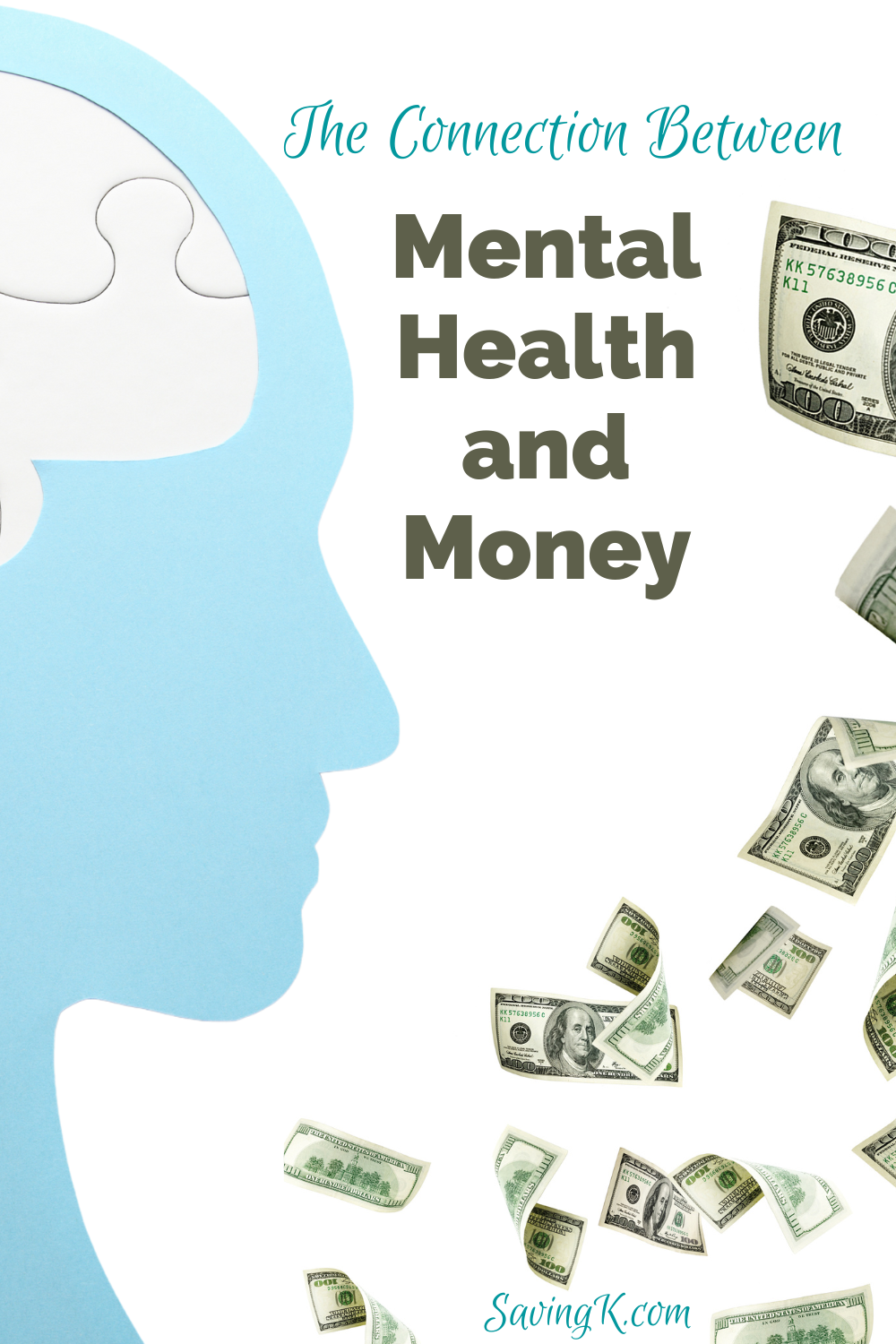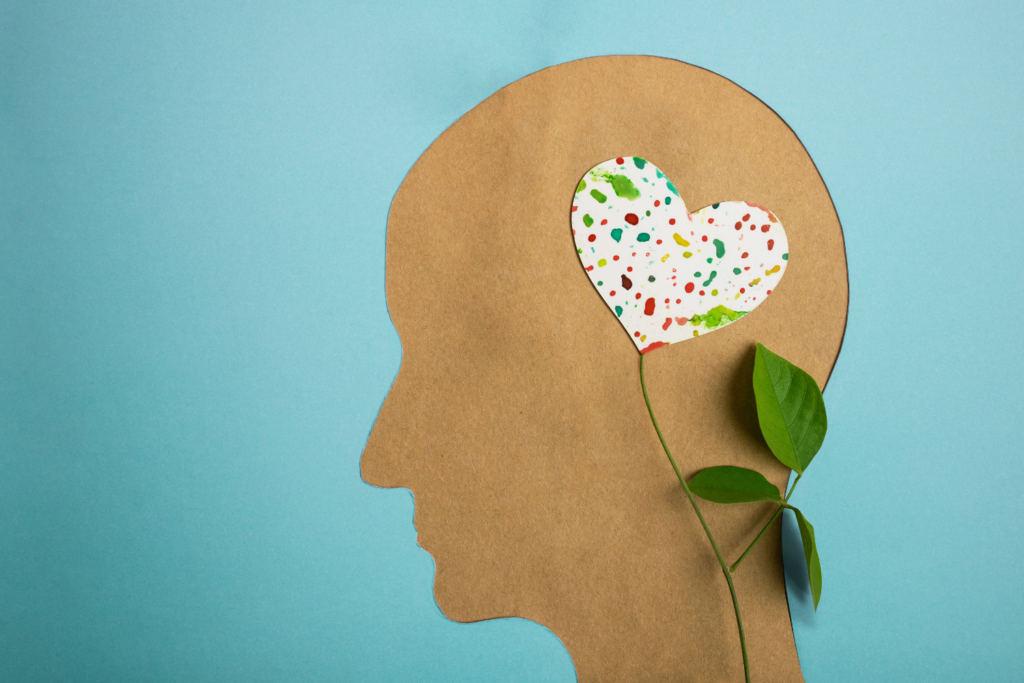
Mental health and money are often seen as two separate entities, but the truth is that they are very much connected. Your mental health can have a major impact on your finances, and your finances can have a major impact on your mental health. It’s important to be aware of this connection so that you can take steps to improve both your mental health and your financial health.
Do you ever feel like money is the root of all evil? Do you think that if you had more money, your mental health would improve? According to a study published in The Journal of Behavioral Finance, there may be a correlation between mental illness and wealth. The study found that people who are wealthy are more likely to suffer from mental health problems such as anxiety and depression. So, what does this mean for you? Well, it’s important to be aware of the connection between money and mental health, and it’s also important to take care of your mental health no matter what your financial status is. In this blog post, we will discuss the relationship between mental illness and money, and we will offer some tips for maintaining your mental health.
Contents
A Primer on Mental Illness
Mental illness is a broad term that is used to describe a wide range of mental health conditions. According to the National Institute of Mental Health, about one in five adults in the United States (18.5%) experiences some form of mental illness in any given year. Mental illness can manifest itself in a wide variety of ways, and it is not always easy to identify.
Mental illness can be characterized as a syndrome or group of symptoms that adversely affect a person’s thinking, feeling, or behavior. It can cause a person to experiences changes in their mood, thoughts, and feelings. In some cases, it can even lead to changes in physical health. Mental illness can be caused by a variety of factors, including but not limited to genetics, environment, and psychological trauma.
There are many different types of mental illness, each with its own set of symptoms. Some of the most common types of mental illness include anxiety disorders, mood disorders, eating disorders, and personality disorders. let’s take a closer look at each one.
Depression
Depression is a common type of mental illness that can cause feelings of sadness, loss of interest in activities, fatigue, problems with sleeping or eating, and difficulty concentrating. Depression can range from mild to severe and may last for weeks or months at a time. Depression is most often treated with medication and/or therapy.
Anxiety Disorders
Anxiety disorders are the most common type of mental illness. They are characterized by excessive fear or worry. People with anxiety disorders often have difficulty controlling their anxiety, which can interfere with their daily lives. Anxiety disorders can be caused by a variety of factors, including genetics, environment, and psychological trauma. There are many different types of anxiety disorders, including but not limited to generalized anxiety disorder, panic disorder, phobias, and social anxiety disorder.
Bipolar Disorder
Bipolar disorder is a type of mental illness that causes extreme changes in mood. People with bipolar disorder may experience periods of highs (mania) followed by periods of lows (depression). Bipolar disorder can be treated with medication and/or therapy. Mood disorders are characterized by persistent changes in mood that can interfere with a person’s ability to function normally. Mood disorders can be caused by a variety of factors, including genetics, environment, and psychological trauma.
Schizophrenia
Schizophrenia is a type of mental illness that causes changes in thinking, mood, and behavior. People with schizophrenia may hear voices or see things that are not there (hallucinations), believe that other people are trying to harm them (paranoia), or have difficulty distinguishing between what is real and what is not real (delusions). Schizophrenia can be treated with medication and/or therapy.
Eating Disorders
Eating disorders are characterized by abnormal eating habits that can interfere with a person’s physical and emotional health. Eating disorders can be caused by a variety of factors, including genetics, environment, and psychological trauma. There are many different types of eating disorders, including but not limited to anorexia nervosa (characterized by self-starvation), bulimia nervosa (characterized by bingeing and purging), and binge eating disorder (characterized by frequent episodes of overeating).
Personality Disorders
Personality disorders are characterized by rigid patterns of thinking and behaving that can interfere with a person’s ability to function normally. Personality disorders can be caused by a variety of factors, including genetics and environment. There are many different types of personality disorders), including but not limited to antisocial personality disorder (characterized by disregard for the rights of others), borderline personality disorder (characterized by impulsivity and instability), narcissistic personality disorder (characterized by grandiosity and self-importance), and Obsessive-Compulsive Personality Disorder (characterized by rigidity and perfectionism).
Mental illness is a common but often misunderstood condition that affects millions of Americans every year. Mental illness can take many different forms, and its symptoms can range from mild to severe. If you or someone you know is struggling with mental illness, there is help available! Mental illness is treatable—and recovery is possible! Treatment for mental illness often includes medication (such as antidepressants or antipsychotics), psychotherapy (such as cognitive-behavioral therapy or dialectical-behavioral therapy), or both!
If you’re struggling with mental health issues, it’s important to seek help from a qualified professional. This is not only because mental health problems can adversely affect your finances, but also because they can have a negative impact on other areas of your life. If you think you may be struggling with a mental health condition, reach out for help today.
How Mental Health Affects Money
It’s no secret that money is a major source of stress for many people. In fact, a study by the American Psychological Association found that 72% of Americans report feeling stressed about money at least some of the time. But what many people don’t realize is that there is a strong link between mental health and money.
For many people, mental health and money management are two very taboo subjects. We don’t like to talk about our mental health because it can be seen as a weakness, and we don’t like to talk about our finances because it can be seen as bragging. However, the reality is that our mental health has a direct impact on our ability to manage our money. Here’s a look at how mental health can affect your finances.
Anxiety and Impulse Spending
One of the most common mental health issues that can lead to financial problems is anxiety. Anxiety can cause us to make impulsive decisions, including impulse spending. When we’re anxious, we’re not thinking logically about what we need versus what we want. We’re just trying to soothe ourselves in the moment, and buying things can be a form of self-medication. Of course, this type of spending can quickly get out of control and leave us in a difficult financial situation.
Depression and Overspending
Depression is another mental health issue that can have a negative impact on our finances. People who are dealing with depression may find themselves overspending as a way to make themselves feel better in the short-term. Unfortunately, this only leads to more financial problems down the road. Depression can also lead to financial problems by causing us to miss work or make mistakes at work, which can lead to lost income or even termination.
Mental health conditions can also affect your ability to stick to a budget or make wise financial decisions. For example, if you have attention deficit hyperactivity disorder (ADHD), you may have difficulty budgeting because of impulsivity and disorganization. And if you have obsessive-compulsive disorder (OCD), you may struggle with making financial decisions because of your need for order and control.
How Money Affects Mental Health
It’s no secret that money can be a major source of stress. Financial troubles can take a toll on our mental and emotional wellbeing, leading to anxiety, depression, and even PTSD. In fact, a recent study found that money is the leading cause of stress in America. But it’s not just the lack of money that can cause problems; having too much money can be just as damaging to our mental health.
How Lack of Money Can Affect Mental Health
It’s no surprise that financial trouble can lead to mental health issues. When we’re constantly worried about money, it’s hard to focus on anything else. We may start to feel like we’re never going to get ahead, leading to feelings of hopelessness and despair. If we’re already struggling with mental health issues, money problems can make them even worse.
Also money is often a major source of conflict in relationships. Whether we’re arguing with our spouse about how to budget or fighting with our kids about allowance, financial disagreements can put a strain on even the strongest relationships.
In addition, worrying about money can lead to feelings of anxiety and insecurity. If we’re constantly worried about being able to afford our basic needs or provide for our families, it’s difficult to relax and enjoy life. This can lead to problems like insomnia, as well as physical health problems like headaches and high blood pressure.
Finally, feeling like we can’t keep up with others financially can lead to comparison and envy. If we see our friends and neighbors buying things we can’t afford or taking lavish vacations while we’re struggling to pay the bills, it’s only natural to feel envious and resentful. This feeling of jealousy can damage our relationships and make us unhappy with our own lives.
How Too Much Money Can Affect Mental Health
While you might think that having a lot of money would make life easier, it can actually have the opposite effect. Research has shown that people who make more than $75,000 a year are just as likely to be unhappy as those who make less than $25,000 a year. In fact, people who make more than $125,000 a year are actually more likely to report being unhappy. There are a few possible explanations for this phenomenon.
Does being rich and famous cause mental illness?
While there is no definitive answer to this question, some experts believe that there may be a connection between wealth and mental illness. For example, people who are wealthy may be more likely to suffer from anxiety and depression. This can be due to the stress of managing money and the pressure of maintaining a certain lifestyle. Additionally, famous people may also be more likely to suffer from mental health problems due to the pressure of living up to their public image.
List of celebrities that have died by suicide

When a celebrity commits suicide, their family isn’t the only ones left shocked and betrayed–the whole world feels it. It might seem like celebrities have perfect lives since they’re constantly in the public eye and are showered with fame, wealth, and adoration from fans. But even though their pain is usually hidden away from everyone, famous people experience hurt and disappointment just like everybody else. Here a some celebrities who committed suicide.
- Vincent van Gogh, painter, 1853-1890
- Ernest Hemingway, literary icon, 1899-1961
- Sylvia Plath, author, 1932-1963
- Kurt Cobain, Nirvana lead singer, 1967-1994
- John McAfee, founder of McAfee, 1967-1994
- Michael Hutchence, INXS lead singer, 1960-1997
- Dana Plato, actress, 1964-1999
- Alexander McQueen, fashion designer, 1969-2010
- Robin Williams, actor and comedian, 1951-2014
- Chris Cornell, Soundgarden and Audioslave lead singer, 1964-2017
- Chester Bennington, Linkin Park lead singer, 1976-2017
- Anthony Bourdain, chef, 1956-2018
- Kate Spade, fashion designer, 1962-2018
- Naomi Judd, singer, 1946-2022
- Stephen “tWitch” Boss, DJ on Ellen Degeneres’ talk show, 1982-2022
- Heather Armstrong, aka Dooce, the OG mommy blogger, 1975-2023
Unfortunately, there are even more. Click here for a list of 100 celebrities who died by suicide.
Middle Class Least Affected By Mental Health Issues
A recent study has found that the middle class is the least likely to experience mental health issues. The study, conducted by the University of Manchester, looked at data from over 8,000 people. The findings showed that those in the middle class were significantly less likely to experience depression, anxiety, and other mental health issues than those in the lower or upper class.
Why is this? The researchers believe that it may be due to the fact that middle-class individuals have more social and economic resources at their disposal. They also tend to have higher levels of education and are more likely to be employed in professional occupations. These factors all contribute to increased mental well-being.
In contrast, individuals in the lower class are more likely to experience poverty, social exclusion, and unemployment. These factors can lead to increased levels of stress and anxiety, which can in turn trigger mental health problems. Individuals in the upper class are also under a lot of pressure to maintain their social status and lifestyle. This can lead to increased levels of anxiety and depression.
Regardless of where you fall on the socio-economic spectrum, it’s important to be aware of the signs of mental health issues and to seek help if you’re experiencing any problems. If you’re struggling, don’t hesitate to reach out to a friend, family member, or mental health professional for support.
Money Madness: The Mental Illness/Wealth Connection
Whether we have too much or too little, money is one of the most common sources of stress in our lives. It’s important to be mindful of how our relationship with money is affecting our mental health. If you’re struggling to manage your finances or feeling overwhelmed by your wealth, talking to a therapist can help you get back on track.
If one learns how mental health and money are connected, that might help if someone is struggling. For example, if someone is feeling anxious about money, they can take some time to reflect on their relationship with money. Do they need to change their spending habits? Are they worried about money because they are in debt? Once the root of the problem is identified, it can be easier to find a solution.
There are a few things that you can do to improve your mental health and your financial health. First, it’s important to be honest with yourself about your mental health. If you’re struggling with anxiety or depression, be sure to seek help from a mental health professional. You can also take steps to reduce stress in your life by simplifying your finances and learning how to manage money in a way that works for you. Lastly, remember that your mental health is just as important as your physical health, and it’s worth investing in both.
3 Tips To Maintain Mental Health
In our fast-paced, hyper-connected world, it’s more important than ever to take care of our mental health. According to the National Institute of Mental Health, 18.5% of adults in the United States suffer from some form of mental illness, ranging from anxiety and depression to more serious conditions like schizophrenia. And while there are many factors that contribute to poor mental health, stress is one of the most common and destructive.

That’s why it’s so important to find ways to manage stress and keep our mental health in check. In this blog post, we’ll share some tips on how to do just that. So read on, and start taking steps towards a healthier mind!
1. Get movin’!
Exercise has been shown to be an effective way to reduce stress and improve mental health. Not only does it release endorphins—the “feel-good” chemicals in our brains—but it also helps to clear our minds and give us a break from the stresses of daily life. So get up and get moving, even if it’s just a walk around the block!
Your physical health can have a big impact on your mental health. Be sure to eat healthy foods, exercise regularly, and get enough sleep.
2. Connect with others.
Human connection is essential for our mental wellbeing. Spend time with friends and family, reach out to someone you haven’t talked to in a while, join a club or group…whatever makes you feel connected and supported. You don’t have to go through life alone—there are people who care about you and want to help you through tough times. Having a supportive network of family and friends is crucial for maintaining mental health. Lean on your loved ones when you’re feeling down, and offer support to them when they need it.
If you’re struggling with mental health issues, it’s important to connect and talk to someone who can help. Whether you talk to a therapist, counselor, or doctor, getting professional help is a key step in improving your mental health.
3. Make time for yourself.
It’s important to find time for activities that make you happy and help you relax. This can be anything from reading a book to taking a relaxing bath. Do whatever you need to do to take care of yourself mentally and emotionally. Whether it’s reading, listening to music, spending time in nature, or anything else that brings you joy, carve out time for yourself every day. This is your time to recharge and refocus, so make sure you use it wisely!
Your mental health matters! By making small changes in your everyday routine—like exercising, spending time with loved ones, and taking some “me” time—you can significantly improve your mental wellbeing. So don’t wait—start taking steps today towards a happier, healthier mind!
Final PSA
If you or someone you know is struggling with mental health issues, there are resources available to help. The National Alliance on Mental Illness (NAMI) is a great resource for mental health information and support. You can also call the National Suicide & Crisis Lifeline at 988 – formerly 800-273-TALK (800-273-8225) – to speak with someone who can help. They provide 24/7, free and confidential support for anyone in distress.

Don’t hesitate to reach out for help if you need it. mental health is just as important as physical health, and it’s crucial to take care of both. Money should never be a reason to neglect your mental health. Remember, you are not alone in this. There is help available if you need it. So please, don’t hesitate to reach out if you’re struggling. Your mental health is worth it.





